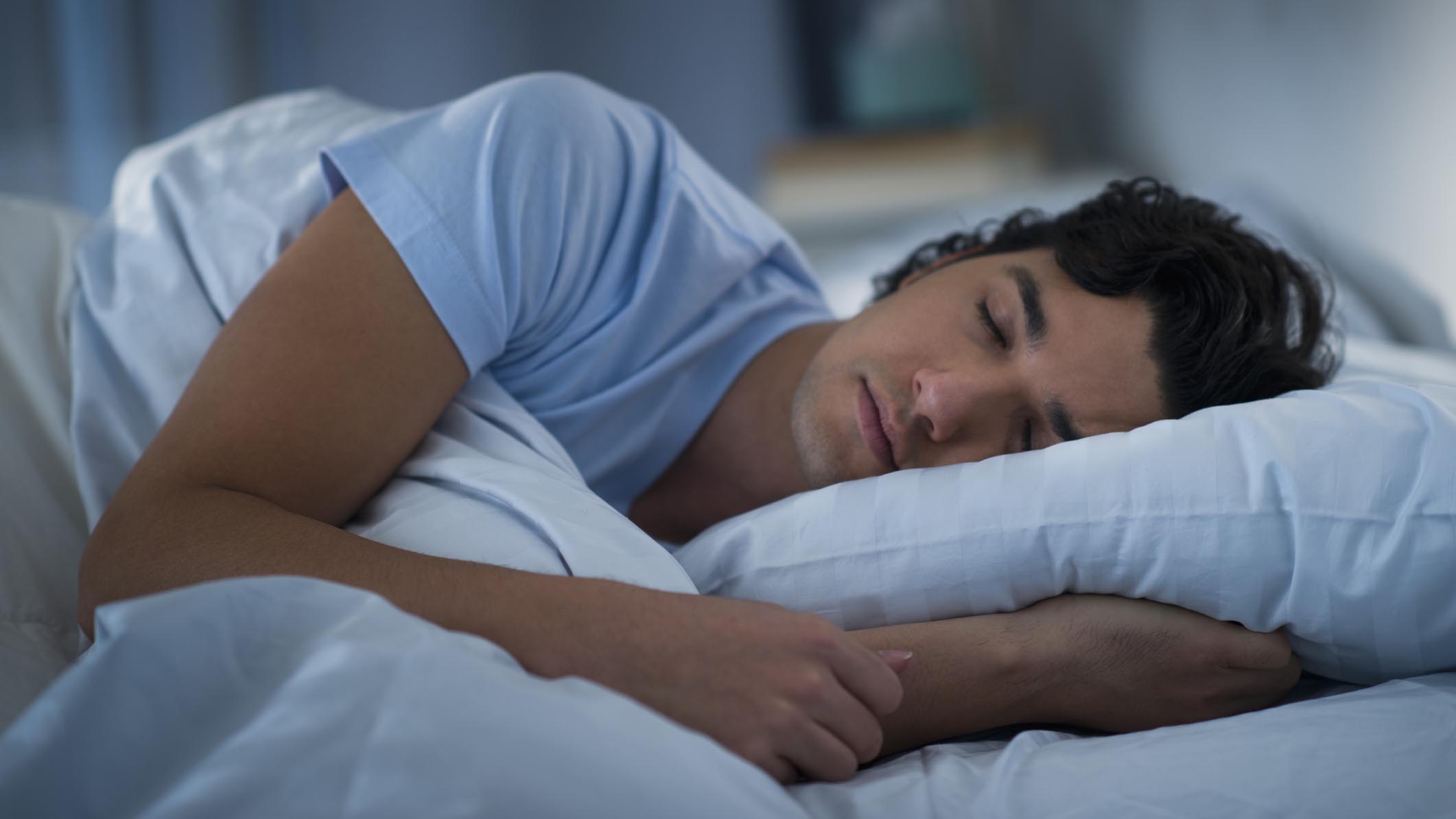How-To
How to Improve Sleep
Learn practical steps to improve your sleep quality, including setting a schedule, creating a good environment, and managing lifestyle habits
Getting enough quality sleep is vital for your physical and mental health. When you sleep well, your body repairs itself, your mind processes information, and your energy levels get restored. Unfortunately, many people struggle with sleep, whether it’s trouble falling asleep, staying asleep, or waking up feeling tired. Improving your sleep often involves making small, consistent changes to your daily habits and environment, collectively known as sleep hygiene.
This guide will provide practical steps you can take to enhance your sleep.
Understanding the Importance of Sleep
Sleep is not just a period of rest; it is an active process crucial for various bodily functions. During sleep, your brain consolidates memories, removes toxins, and prepares you for the next day. A lack of sleep can lead to:
- Reduced concentration and productivity
- Weakened immune system
- Increased risk of chronic diseases like heart disease and diabetes
- Mood swings and irritability
- Impaired judgment and decision-making
Aim for 7-9 hours of sleep per night for most adults, though individual needs can vary.
Step 1: Establish a Consistent Sleep Schedule
Your body thrives on routine. Going to bed and waking up at roughly the same time each day, even on weekends, helps regulate your body’s natural sleep-wake cycle, known as your circadian rhythm.
- Choose a Regular Bedtime and Wake-Up Time: Determine a time you can realistically stick to every day.
- Stick to It: Try to go to bed and wake up at these times, even on Saturdays and Sundays. This might feel hard at first, but consistency will train your body.
- Avoid Oversleeping on Weekends: While catching up on a little sleep can feel good, drastically altering your sleep schedule on weekends can throw off your circadian rhythm, making it harder to sleep during the week.
Step 2: Optimize Your Sleep Environment
Your bedroom setup plays a big role in how well you sleep. Create a space that promotes rest.
- Keep it Dark:
- Block out light using blackout curtains or blinds. Even small amounts of light can disrupt melatonin production, a hormone that helps you sleep.
- Remove or cover any glowing electronics in your room.
- Keep it Quiet:
- Use earplugs if noise is an issue.
- Consider a white noise machine or a fan to mask disruptive sounds. Consistent, low-level background noise can be calming.
- Keep it Cool:
- The ideal sleep temperature for most people is between 18-22°C (65-72°F). Your body’s core temperature drops slightly during sleep.
- Adjust your thermostat, use lightweight bedding, or open a window if safe and comfortable.
- Keep it Comfortable:
- Invest in a comfortable mattress and pillows that support your body.
- Ensure your bedding is clean and pleasant.
Step 3: Develop a Relaxing Bedtime Routine
Preparing your mind and body for sleep signals to your brain that it is time to wind down.
- Start an Hour Before Bed: Aim to begin your routine about an hour before your scheduled bedtime.
- Take a Warm Bath or Shower: The drop in body temperature after a warm bath can promote sleepiness.
- Read a Book: Choose a physical book or an e-reader without a backlit screen.
- Listen to Calming Music or Podcasts: Opt for gentle, instrumental music or a sleep-focused podcast.
- Practice Relaxation Techniques:
- Deep breathing exercises: Slowly inhale through your nose, hold for a few seconds, then exhale slowly through your mouth.
- Gentle stretching: Light stretches can release muscle tension.
- Meditation: Use a guided meditation app or simply focus on your breath.
- Avoid Stimulating Activities: Do not engage in intense exercise, work, or arguments right before bed.
Step 4: Manage Your Diet and Drink Habits
What you consume throughout the day, especially in the evening, affects your sleep.
- Limit Caffeine:
- Avoid caffeine (coffee, tea, soda, energy drinks) at least 6 hours before bedtime. Caffeine is a stimulant that stays in your system for a long time.
- Limit Alcohol:
- While alcohol might make you feel sleepy initially, it disrupts sleep cycles later in the night, leading to fragmented sleep. Avoid alcohol close to bedtime.
- Avoid Heavy Meals Before Bed:
- Eating a large, heavy meal too close to bedtime can cause indigestion and discomfort.
- If you are hungry, opt for a light, easily digestible snack.
- Watch Sugar Intake: High sugar intake, especially late in the day, can lead to energy spikes and crashes that disrupt sleep.
Step 5: Be Mindful of Screen Time
The blue light emitted from electronic screens (phones, tablets, computers, TVs) can interfere with your body’s production of melatonin, making it harder to fall asleep.
- Turn Off Screens: Stop using electronic devices at least 1-2 hours before bedtime.
- Use Blue Light Filters: If you must use a screen, activate blue light filters on your devices (often called “Night Light” mode on Windows, “Night Shift” on iOS).
- Keep Devices Out of the Bedroom: Ideally, your phone and other gadgets should not be in your bedroom.
Step 6: Incorporate Regular Physical Activity
Regular exercise helps you sleep better, but timing is important.
- Exercise Regularly: Aim for at least 30 minutes of moderate exercise most days of the week.
- Time Your Workouts:
- Exercise earlier in the day or in the late afternoon.
- Avoid intense workouts too close to bedtime (within 2-3 hours), as physical activity can be stimulating and raise your body temperature, making it harder to fall asleep.
Step 7: Limit Naps (If You Struggle with Night Sleep)
While short power naps can be beneficial, long or late-afternoon naps can make it harder to sleep at night.
- Keep Naps Short: If you need to nap, limit it to 20-30 minutes.
- Nap Earlier in the Day: Try to nap in the early afternoon, rather than late in the day.
- Avoid Naps Entirely: If you have severe trouble sleeping at night, consider avoiding naps altogether until your nighttime sleep improves.
Step 8: When to Seek Professional Help
If you have tried these methods consistently for several weeks and still experience significant sleep problems, it might be time to talk to a healthcare professional.
- Consult Your Doctor: Discuss your sleep issues with your primary care physician. They can check for underlying medical conditions that might be affecting your sleep (e.g., sleep apnea, restless legs syndrome, thyroid problems).
- Consider a Sleep Specialist: Your doctor might refer you to a sleep specialist or suggest a sleep study (polysomnography) to diagnose conditions like sleep apnea.
- Cognitive Behavioral Therapy for Insomnia (CBT-I): This is a highly effective treatment for chronic insomnia that helps identify and change thoughts and behaviors that interfere with sleep.
Improving sleep takes effort and patience. By making consistent changes to your sleep hygiene, you can significantly boost your sleep quality and overall well-being.
Frequently Asked Questions (FAQ)
Q1: How much sleep do adults need per night?
A1: Most adults need 7 to 9 hours of sleep per night for optimal health and functioning.
Q2: What is “sleep hygiene”?
A2: Sleep hygiene refers to a set of daily habits and practices that are conducive to good quality sleep. It includes factors like your sleep schedule, environment, and daily routines.
Q3: Does exercise help with sleep?
A3: Yes, regular exercise can significantly improve sleep quality. However, it’s important to avoid intense workouts close to bedtime (within 2-3 hours) as it can be too stimulating.
Q4: Why should I avoid screens before bed?
A4: Electronic screens emit blue light, which can suppress the production of melatonin, a hormone that signals to your body that it’s time to sleep. Avoiding screens for 1-2 hours before bed helps your body naturally prepare for sleep.
Q5: When should I consider seeing a doctor for sleep problems?
A5: If you consistently struggle with falling asleep, staying asleep, or waking up tired despite trying good sleep hygiene practices for several weeks, or if you suspect an underlying medical condition like sleep apnea, it’s a good idea to consult your doctor.



















